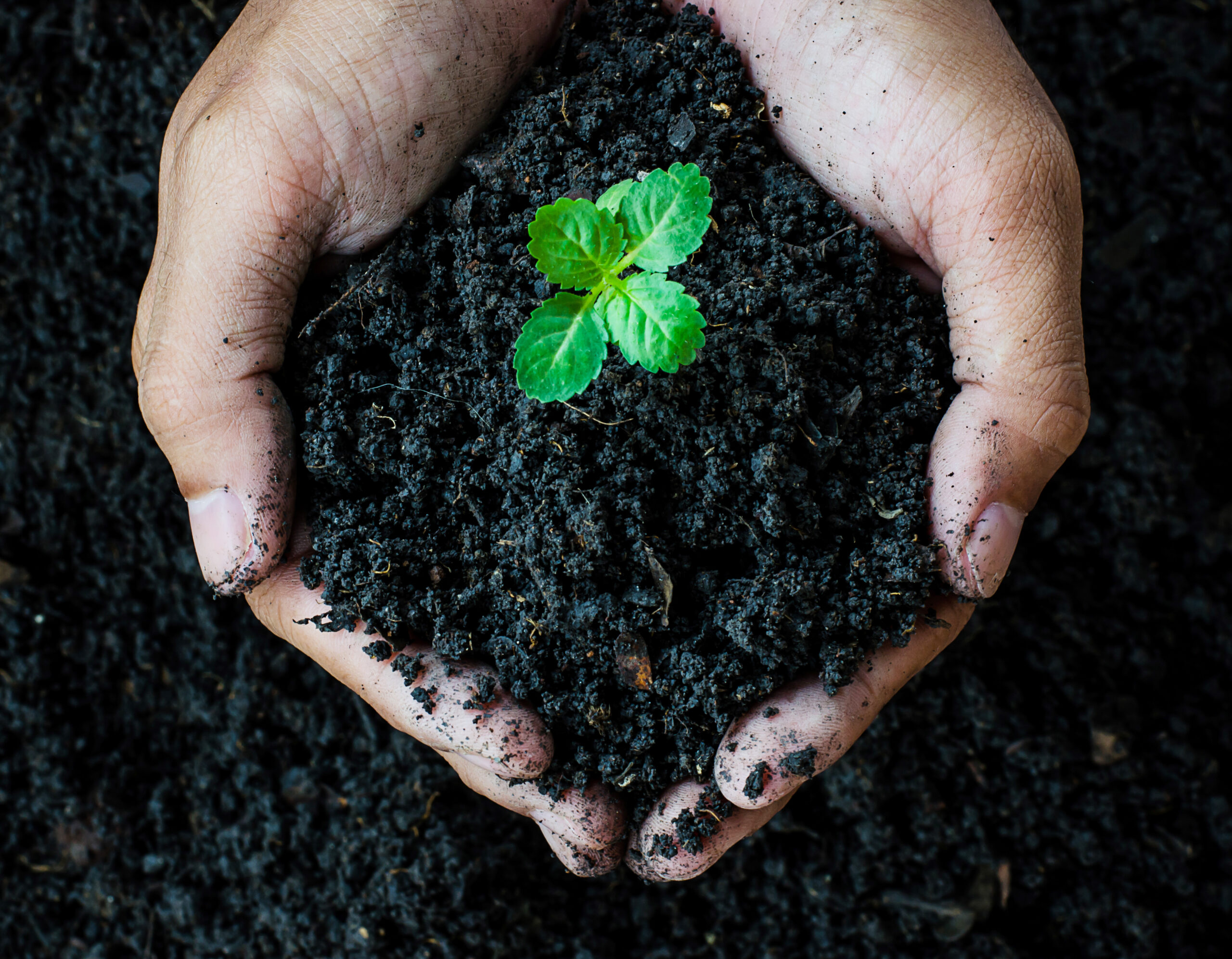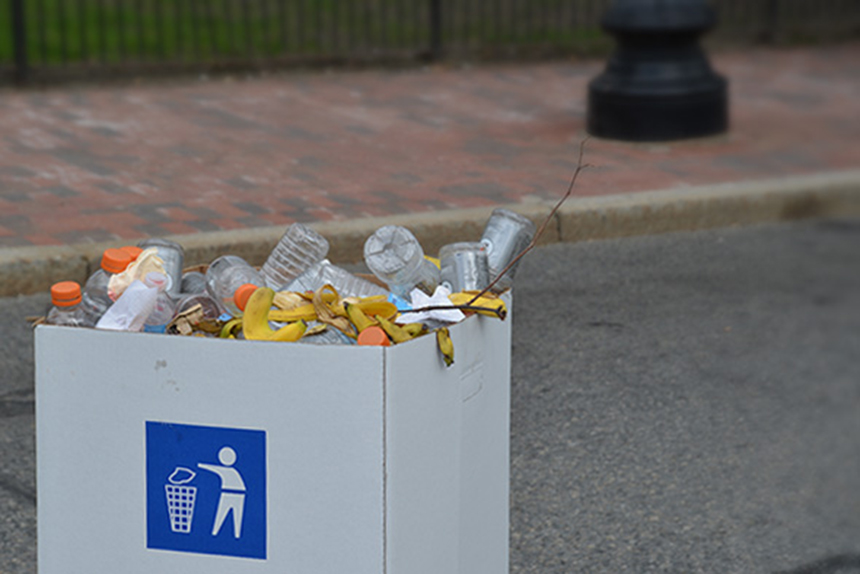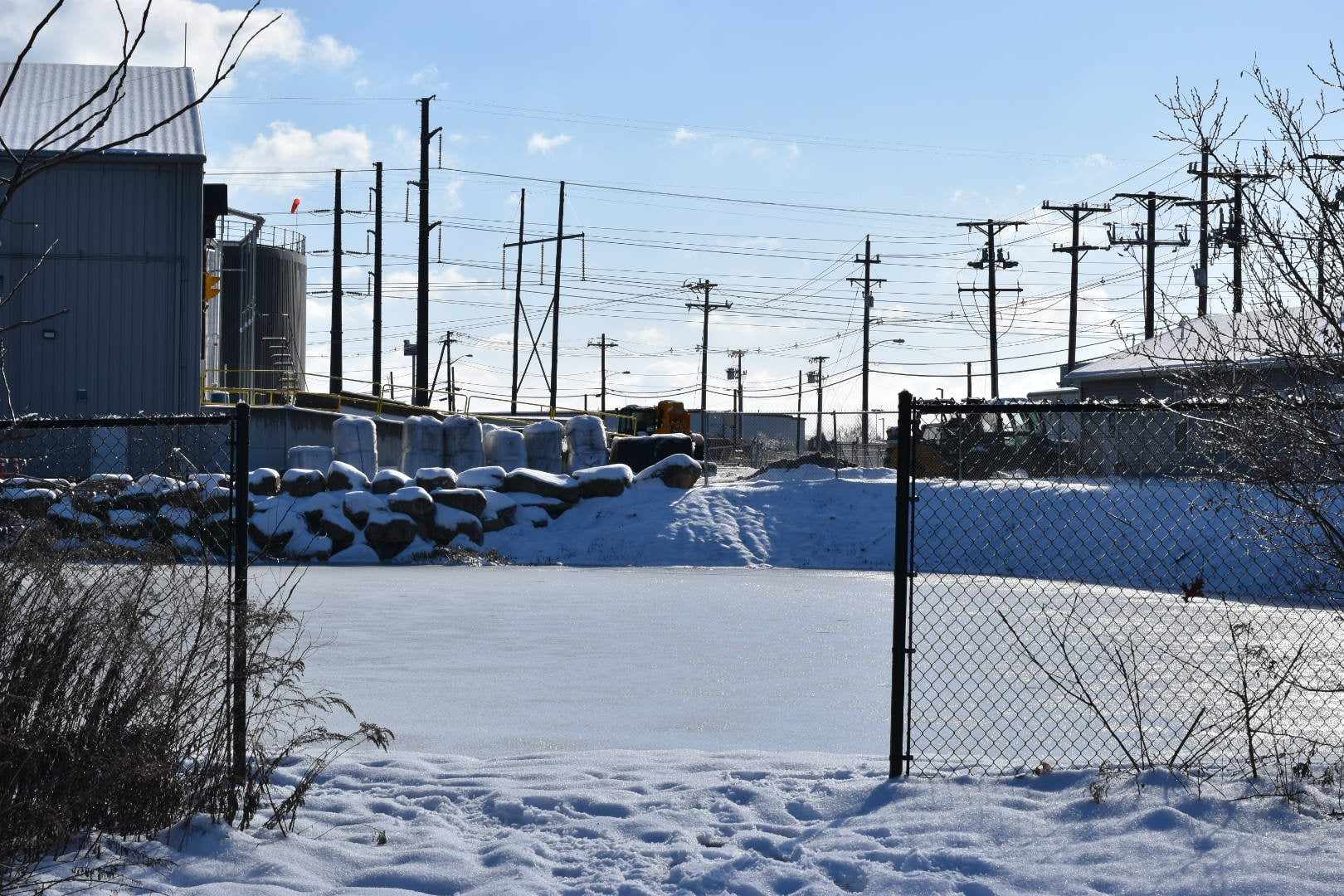URI Students Display Hundreds of Plastic Bottles on Quad to Support Bottle Bill
December 8, 2023
KINGSTON, R.I. — It took a couple dozen University of Rhode Island students three hours to place an installation of about 3,500 plastic bottles on the campus quad Thursday morning.
Once the water bottles, nips, and soda bottles covered the lawn, students from the honors class “River Stories” took shifts in the freezing weather to get other members of the university community passing through to sign a petition to support a state bottle return bill.
Over the course of the fall semester, URI professor Heather Johnson said her honors students saw how plastic littered the state’s rivers during field trips and in literature and documentaries about them.
“No surprise they became aware of how impactful plastic is in the watershed,” Johnson told ecoRI News.
So as a class, the students decided to create a project that drew attention to the issue and also had the potential to create a positive impact.
Students collected many of the littered bottles, while some were donated by Friends of the Saugatucket or recycled from a bottle art project.
“They’re all recovered from the environment, so they’re all mangled and dirty, which is perfect,” Johnson said.
This is the third year Johnson has taught the honors class, inspired by her time spent on the River Shannon in Ireland as a teenager. “I just love rivers and I realized that not everyone notices them,” she said.
The university community members who approached the installation and signed the petition were a mix of people passionate about rivers and the natural world, like Johnson, and people who had never heard of a bottle bill before, according to the honors students bundled up and taking shifts on the quad.
“People are coming up and asking, like, ‘You guys trying to ban nips?’” Liviana Donatelli, a senior in the class, said. Donatelli, wrapped in many layers and thick mittens, had staffed the petition station since the students began assembling the display.
By the early afternoon, almost all of their petition papers were filled, which Donatelli guessed was about 200 signatures.
Junior Changyi Yu heard about the installation and the petition from a professor. Yu, who is from Pawtucket, was surprised to hear that Rhode Island didn’t have a bottle bill on the books that allows residents to collect a deposit on recyclables, like cans and bottles, when they’re returned, as other states, such as Massachusetts, do.
Growing up near the Blackstone River, Yu said he’s seen tons of plastic floating in the water and the “chaos” of litter in the area.
“I do hope this thing pans out well,” he said of the petition.
Lizzie Welch, a first-year student in “River Stories,” was also inspired by her own experience living near a river. A marine biology major, Welch grew up on the Merrimack River and said she saw firsthand how humans could help and harm the environment.
The ocean and rivers are “tied into everything around us,” she said.
Both Welch and Donatelli thought the class was a fun and interesting way to explore rivers from a new perspective through science and art.
Donatelli, who is graduating next weekend, said she was particularly happy about the petition part of the project.




Activism is part of the answer.
Thank you for your wonderful help getting RI to come to its senses and do at least a little bit to rid our world of disposable plastics!
WOOOWWWW!! Well done.
Hello,
A 10 cent bottle bill does not make financial sense when neighboring states only charge 5 cents. Individuals will purchase bottles over the RI border in CT and MA with a 5 cent deposit and redeem the bottles in RI for the 10 cent return. RI will not get the initial deposit money and will suffer a net loss of revenue by paying the 10 cent redemption fee per bottle. I completely understand the thoughts behind a bottle bill. However, let’s be realistic in the writing and implementation of a bottle bill and charge the same bottle fee as our neighboring states.
Plastic bottles aren’t a problem if people would just stop buying them. Now there are even more compelling health reasons to avoid bottled water in plastic. Recent news stories report plastic particles found in bottled water are “in concentrations 10 to 100 times more than previously estimated. Researchers from Columbia University and Rutgers University found roughly 240,000 detectable plastic fragments in a typical liter of bottled water. The study was published Monday in the Proceedings of the National Academy of Sciences. About 10% of the detected plastic particles were microplastics, and the other 90% were nanoplastics. Microplastics are between 5 millimeters to 1 micrometer; nanoplastics are particles less than 1 micrometer in size. For context, a human hair is about 70 micrometers thick. Nanoplastics could be even more dangerous than microplastics because when inside the human body, “the smaller it goes, the easier for it to be misidentified as the natural component of the cell.” A 5 or 10 cent penalty isn’t going to dissuade anyone. The state should get an educational message out about how dangerous this product is (something like the littering and forest fire public service ads of the past), because apparently there are still some consumers who are ignorant of the issue.